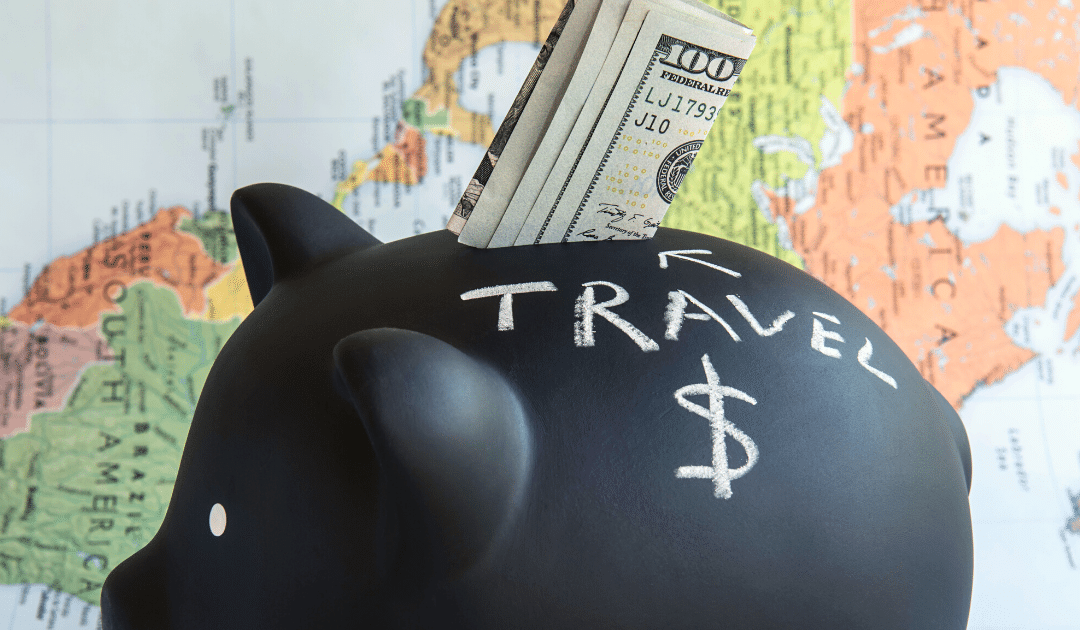Traveling can make money disappear fast – from flights to accommodations to activities, costs can add up quickly. But the good news is, they don’t have to!
We got some inside tips from the traveling pros on how you can save big and find the best deals the next time you travel.
Tip #1: Search airline deals for off-peak rates using anonymous browsers.
The most expensive flights occur when most people are traveling. Use that knowledge to book flights during times when airlines are less busy such as mid-week or outside tourist season.
-
- When searching for flights, be sure to use an anonymous browser so booking sites can’t use your data to increase ticket prices.
- Search for flight deals on websites such as Skyscanner, Kayak, Vayama, The Flight Deal, and Secret Flying.
- Join airline frequent flyer programs to earn points and get free flights.
Tip #2: Sign up for credit cards that give you travel points.
If you love to travel, consider a credit card that gives you travel points. Many frequent travelers use this system to earn free flights or stay for free in their destination of choice.
-
- You get bonuses from many cards just for signing up.
- Then you have to spend to accumulate more points. Consider using this credit card to pay your rent or mortgage, car payment or other larger monthly bills. It’s like using any other account, but with a travel bonus!
Tip #3: Choose a destination where your money is actually worth more.
When you’re considering where to travel, think about countries where the dollar is strong. That will make your money go further.
-
- You’ll find cheaper travel in Asia: Vietnam, Nepal, Thailand Laos, Indonesia Mexico, Colombia, Brazil, and Bolivia.
- You’ll also find great deals in and near Europe: Romania, Ukraine, Turkey, and Georgia.
- Some countries will even reimburse you for all or part of the retail sales tax that you spend there. These include Canada, Japan, Taiwan, and the United Kingdom. Keep your receipts and fill out the forms. You will need an official stamp by customs at the airport.
Tip #4: Be creative in your accommodation choice.
You can stay in a hotel and perhaps earn loyalty points. Or you can find some unusual local places simply by searching for alternative places to stay.
-
- Airbnb is one of the most well-known accommodation sites. But make sure you also have a look at its competitors: Tripping.com, HomeToGo.com, FlipKey.com, OneFineStay.com, Vrbo.com, HouseTrip.com, and Couchsurfing.com.
- Save money by staying in the lesser-known town close to where you want to be.
- Trade homes. Stay in a family’s home while they stay in yours. Check out sites like HomeExchange.com that matches you with your preferred destination.
- Check out housesitter.com to see if you can housesit in the place where you’d like to vacation. Then you’ll stay for free!
Tip #5: Go local for activities and meals and embrace the discounts.
You may want to hit the highlights of your destination’s tourist sites, but chances are the most memorable experiences will be the ones that you discovered while you were there. In planning your travel itinerary, here are some hints.
-
- Talk to locals and get their recommendations for things to do and places to eat.
- You can eat with local families via https://www.eatwith.com.
- Research the free or discounted days and times at museums and galleries, book standing-room-only tickets at shows, and ask about age-related, student, and group membership discounts.
- Take public transportation or walk rather than renting a car. You’ll see more and it will cost less. Consider a frequent travel card for public transport (Oyster card in London, Octopus in Hong Kong).
Tip #6: Avoid international roaming charges.
Your smartphone or laptop may work overseas but it could land you a huge bill for WiFi upon your return. Plus, the WiFi charges at hotels can come with extra charges. Take some steps to get inexpensive WiFi where you travel.
-
- Check with your smartphone provider about an international travel plan to see if it’s cost-effective. You can also ask them to unlock your phone so that you may insert a local SIM card while you’re in a new country.
- Rent a mobile router known as “pocket WiFi.” These hotspots are popular in Europe and Japan.
- Rent an international cell phone. But remember, if you use your phone as a camera, you’ll want to upload those photos to the cloud (or use your original phone or a real camera to take photos).
Enjoy the journey—and the savings. Stay safe and happy travels.
This article is furnished by California Casualty, providing auto and home insurance to educators, law enforcement officers, firefighters, and nurses. Get a quote at 1.866.704.8614 or www.calcas.com.
- Graduation – When to Remove Your Child from Your Auto Policy - May 18, 2023
- How to Prevent Catalytic Converter Theft - May 17, 2023
- How Much Does Home Insurance Cost? - May 17, 2023

